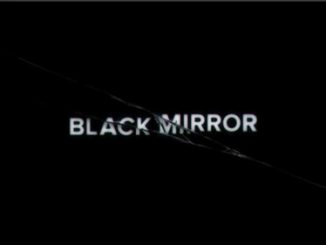
Why we said “it is a far way to address the tech-lash” – snowballing regulatory concerns
Tech lash is a trend that the tech companies dominate in our daily life. In the new media landscape, the citizen can play an active role in platformization, the discrepancy between the users and media companies is dissolving. However, it raises the ethical concerns of a series of derived exploitation and misleads to media users. In a broader view, such hybridity and a complex internet environment extend to the debate between different political ideologies internationally. Oligopoly producing Surplus economic values, which made them in the ascendency position. This result in emanating unequal competitive power in the internet ecosystem (Mansell, 2020). Therefore, we will examine foci to extend the tech-lash can resolve. In the cultural, political and economic discourse, we posit that tech lash cannot address largely. We can only revolve and transit our solution to adapt and mitigate the inequality and disadvantage under such technological innovation progress differ in diverse regulatory actor capacity and leverage in the post-public sphere (Schlesinger, 2020).
Snowballing the issues
We will analyze the representative case from different countries. It is noteworthy that tech-lash snowballing varying degrees of momentum. There is no clear delimitation of who should be accountable for the adverse impact since the regulatory groups have fragmented intentions. At the same time, these fragmented intentions are tangle in the economic, political and cultural regime.
![Boy holding a book about to be hit with a snowball. [front]](https://live.staticflickr.com/5341/9726042952_16e6e0b83a_b.jpg)
“Boy holding a book about to be hit with a snowball. [front]” by Boston Public Library is licensed under CC BY 2.0
# politic claim: Automated algorithm and highly personalized targeted
Fake news filter Bubble
In America, counter speech is tightly stuck with the function of the social media platforms and energize much false news on democratic decision-making. In the news ecosystem, counter speech doctrine leads to more negative externalities (Flaxman, 2016). Indeed, the uprising of citizens on media platforms has an implicit influence on industry structure change. At the same time, there is stagnant economic for newsroom lay off to professional journalism, ultimately enhance the fake news. A case study from the 2016 American presidential election, under the influence of Bubble filter (Oremus, 2017), shows that many people fail to vote for their self- interest, but misinformation personalized and degrade their perception. However, a new study suggests that media online affects political polarization should be revisited (Allred, 2018), Since there is no precise detection of misinformation in what degrees personal interest. Moreover, the inundated invalid account such as bots amplifies the range of spreading misinformation (Hern, 2017).

“Fake News – Computer Screen Reading Fake News” by mikemacmarketing is licensed under CC BY 2.0
Difficulties 1: The clashing geopolitics- Tech nationalism
In the last century, the public debate around freedom emanated political movement encompassing the media and communication (schlesinger, 2020). In the 21 first century, the emerging nationalism amplifies the ideological tension gave rise to the rivalries between the American and Chinese government. (Picard & Pickard, 2017) concern the industrial structure in need of concurrently social benefit demands, he proposes to poise the competing capability and equity in the public and private sector. Nevertheless, the state-actor are more concerned about the social effect of the internet and self-interest, raising the confronting alignment among states. Negative interpretation, the free speech favors the private property interest such as Facebook and google while it serves the national interest to strengthen their cyber-military capacities. (Mueller, 2017). Second, invoiced with cyber-attacks and national security, the US crackdown on Huawei’s 5G technology reinforces the widespread conspiracy misinformation. Similarly, the EU has pioneer implementation of the anti-trust law towards US possible surveillance, but the challenges for GDPR in enforcing big tech regulation at the global level. As the various policies unravel the respective ecosystem to unify the international regulation standard, there is no clarity consistency among states member to interpret law within different ideological stances.
# economic claim: tech companies are monopoly ecosystem
In the trend of platform capitalism, the first mover ascendancy derives the digital market monopoly. Benkler suggests non-market strategies made platforms like as produce surplus economic values (Benkler, 2006). In the backdrop of monopolization, the issue with the stigma of dehumanized labour system occurs (Lawrence, 2016). Recently, the UK government resolved the gig economy issue and protected the labor rights result of Uber had lost the lawsuit.

“Cloud Solutions – Creative Commons” by NEC Corporation of America is licensed under CC BY 2.0
Difficulties 2: Civil society organization governance and media outlet requiring
Scope in Australia and UK
Mueller (2017) points out the jurisdictional paradox between non-state actors and the multi-stakeholder model. When it is up level to the public policymaking, it will face the same dilemma as a state actor. In the context of the largest media platforms, Google and Facebook are up against Australian media outlets. Allegedly from the ACCC report, google takes up 95 per cent of online search activities, and Facebook take up 75 per cent have threatened the traditional media business model, resulting in a collapse (ACCC, 2019). The regulatory framework has a limited effect in adapting well to digitalization and media convergence because traditional Australian media is highly concentrated.
Furthermore, the blurring of boundaries between services and devices in digitalization highlighted that many legislative concepts have been outdated. Also, the newsroom recession leads to job cuts in many professional journalists, provoking untruth reports. Such disinformation consequently generates a vicious cycle to fifth-estate governance. (Hara, 2018) propose global governance and multi-stakeholders compete. Transferring to Australia, some stakeholders oppose the government reform. Media outlets are inquiring about the harmonized advertising restrictions to protect consumers, requiring the government to give appropriate penalties enforcement to an independent regulator to the harmful advertisement. We can tell an attitude shift from intermediaries should take liability.
In contrast, (Mac Síthigh, 2020), the UK enacted white paper law impose cumulative measures, with the emerging codes of practice apply to the monitoring mechanism might be an effective way. Recently, the Australian government underlined the policy action in enforcing the multi- sided supporting ACMA ability to qualify the news and information (ACCC, 2017). It is still a processing business to balance the regulatory reform.
# culture claim- techno cultures and cybersecurity
The Fappening, how Reddit support toxic
Silicon Valley has fundamentally built upon technology-driven and white male culture, resulting in the recent catastrophe on net neutrality. In this scenario, Reddit heavily relies on ageek-friendly environment, breaking out of “revenge fantasies” are always align with “white male masculinity” design and is admitted non-intervention regulation (Massanari, 2017).
Difficulties 3: Self-regulation: Platform moderation
Content Moderation is a useful tool to cope with cybersecurity when it protects one user from another and removes offensive content. In the gig economy milieu, always criticizes as precarious and poor working conditions, many intermediary firms outsourcing their labour, applying hybrid strategies, besides, value laden. At the same time, users’ internet experience towards content moderation is very precise result in low censorial efficiency (Roberts, 2019). In the post-industrial workplace, the monitor mostly distributes to the part-time worker based on their location with the limited professional knowledge (Gillespie, 2019). Indeed, hiring non- contractor labor lessen labor cost. Tech company function mechanism can assimilate with any company. They need to guarantee their own economic, political imperative and flourish. The lobbying power illuminates the issue under the protection of the elite interest umbrella. Still, meritocratic culture is omnipresent. The interlocking relationship between Silicon Valley and the president-elect administration while the self-regulatory manifests the schism between the maintaining the monopoly and purification platform. The growing pushback for progressive groups (Bose, 2020), However, if they remove or stop disseminating partial political content, they will also lose the potential protection from the media elite. Hence, in light of ensuring public interest, platforms prominently cannot trust to regulate by themselves entirely.

“facebook backlash” by Book Catalog is licensed under CC BY 2.0
Conclusion& looking ahead
Digital platforms are eroding public interest and democracy processing. By Analyzing government regulation, civil society regulation and self-regulation, we found the opposing ideology permeation not only an obstacle in addressing the national tech-lash but derives further debate on the international regulation. We discourse in the multifaceted aspect. These regulations can minimize the current big giant downside. However, the unpredictable interplay of internet actors’ decisions with a variety of conflicting and complementary aims, to a large extend, cannot be effective in addressing the tech-lash in the increasing scale of AI dominance environment. The highly algorithmically generated information is deep fake news which are not able detect by both human and robot. Progressively, the UK and Australia are conducting cumulative measures and codes to balance the regulatory reform with a more objective and transparent manner, which is a positive move for future regulation. Facebook cannot be trusted to regulate itself, with Zuckerberg assert the “freedom of express as possible” leads many threatened by conspiracies and lies (Cohen, 2019). with citizen gradually losing their accountability towards the government (West, 2021), there is a long, challenging journey for a regulator to reconfigure media users mentalization in the tendency of technology innovation.
Reference list:
ACCC. (2019). Digital platforms Inquiry Final Report. Canberra: Commonwealth of Australia 2019.
Allred, K. (2018). The Causes and Effects of “Filter Bubbles” and how to Break Free. Retrieved October 5, 2021, from https://medium.com/@10797952/the-causes-and-effects-of-filter-bubbles-and-how-to-break-free-df6c5cbf919f
Benkler, Y. (2006). The wealth of networks: how social production transforms markets and freedom. New Haven, Conn: Yale University Press. doi: 10.1017/s2071832200005162
Bose, N (2020). Big Tech’s stealth push to influence the Biden administration. Retrieved October 8, 2021, from https://www.reuters.com/article/usa-tech-biden-insight-idUSKBN28V170
D M’ West (2021). Tech lash continues to batter technology sector. Retrieved from October 8, 2021, from https://www.brookings.edu/blog/techtank/2021/04/02/techlash-continues-to-batter-technology-sector/
Flaxman, S., Goel, S., & Rao, J. M. (2016). Filter Bubbles, Echo Chambers, and Online News Consumption. Public Opinion Quarterly, 80(S1), 298–320. doi:10.1093/poq/nfw006
Gillespie, T. (2019). All Platforms Moderate. In Custodians of the Internet (pp. 1–23). Yale University Press. doi: 10.12987/9780300235029-001
Lawrence, F (2016). Uber is treating its drivers as sweated labour, says report: Earnings are often less than minimum wage and ‘barely sufficient to sustain existence’, according to MP Frank Field. Retrieved October 5, 2021, from https://www.theguardian.com/technology/2016/dec/09/uber-drivers-report-sweated-labour-minimum-wage
Hern, A. (2017). How social media filter bubbles and algorithms influence the election: With Facebook becoming a key electoral battleground, researchers are studying how automated accounts are used to alter political debate online. Retrieved October 4, 2021, from https://www.theguardian.com/technology/2017/may/22/social-media-election-facebook-filter-bubbles
K O’Hara. (2018). Four Internets: The Geopolitics of Digital Governance (No. 206). Centre for international governance innovation. Retrieved October 1, 2021, from https://www.cigionline.org/publications/four-internets-geopolitics-digital-governance
Lawrence, F (2016). Uber is treating its drivers as sweated labour, says report: Earnings are often less than minimum wage and ‘barely sufficient to sustain existence’, according to MP Frank Field. Retrieved October 9, 2021, from https://www.theguardian.com/technology/2016/dec/09/uber-drivers-report-sweated-labour-minimum-wage
Mac Síthigh, D. (2020). The road to responsibilities: new attitudes towards Internet intermediaries. Information & Communications Technology Law, 29(1), 1–21. doi: 10.1080/13600834.2020.1677369
Massanari, A. (2017). Gamergate and The Fappening: How Reddit’s algorithm, governance, and culture support toxic technocultures. New Media & Society, 19(3), 329–346. doi: 10.1177/1461444815608807
Mueller, M. (2017). Will the Internet fragment?: sovereignty, globalization and cyberspace. Polity Press.
Oremus, W. (2017, April 5). The Filter Bubble Revisited: A new study suggests online media aren’t to blame for political polarization—yet. Retrieved October 9, 2021, from https://slate.com/technology/2017/04/filter-bubbles-revisited-the-internet-may-not-be-driving-political-polarization.html
Roberts, S. T. (2014). Behind the screen: The hidden digital labor of commercial content moderation. ProQuest Dissertations Publishing.
S B’ Cohen (2019, November 22). Read Sacha Baron Cohen’s scathing attack on Facebook in full: ‘greatest propaganda machine in history’. Retrieved from October 9, 2021, from https://www.theguardian.com/technology/2019/nov/22/sacha-baron-cohen-facebook-propaganda
Schlesinger, P. (2020, August 17). After the post-public sphere. Media, Culture & Society, 42(7-8), 1545–1563. doi: 10.1177/0163443720948003

This work is licensed under a Creative Commons Attribution 4.0 International License.



